The realm of science fiction, often perceived as a masculine domain, has always thrived on the creativity and passion of women. From Mary Shelley’s groundbreaking Frankenstein to the fervent female fanbase that propelled Star Trek conventions in the 70s, women have been integral to the sci-fi narrative. In the digital age, particularly during the Tumblr era of the early 2010s, Doctor Who emerged as a central pillar of female sci-fi fandom.
Russell T Davies’s 2005 reimagining of Doctor Who ingeniously shifted the narrative lens, grounding the epic space opera in the relatable perspective of Rose Tyler (Billie Piper), a 19-year-old shop assistant. This choice was pivotal, making the fantastical journey of the enigmatic, centuries-old Doctor (Christopher Eccleston) accessible and emotionally resonant through Rose’s eyes. As we anticipate RTD’s return to the Doctor Who universe, revisiting season 1 feels timely and essential. Having personally experienced the show’s profound impact during a post-college binge-watch around 11 years ago, and acknowledging the undeniable influence of early 2010s Tumblr culture, a fresh examination of this foundational season is warranted.
While my memories of Christopher Eccleston’s singular season as the Ninth Doctor are overwhelmingly positive, I approached this rewatch with the expectation that season one was still finding its footing. However, this recent viewing proved to be a revelation. Although some aspects, particularly the special effects and certain comedic elements, reflect the show’s nascent stage, season one’s strengths are remarkably pronounced and consistently delivered. Indeed, I’d confidently place it among the pantheon of NuWho’s finest seasons, alongside seasons five and nine, for its narrative power and enduring appeal.
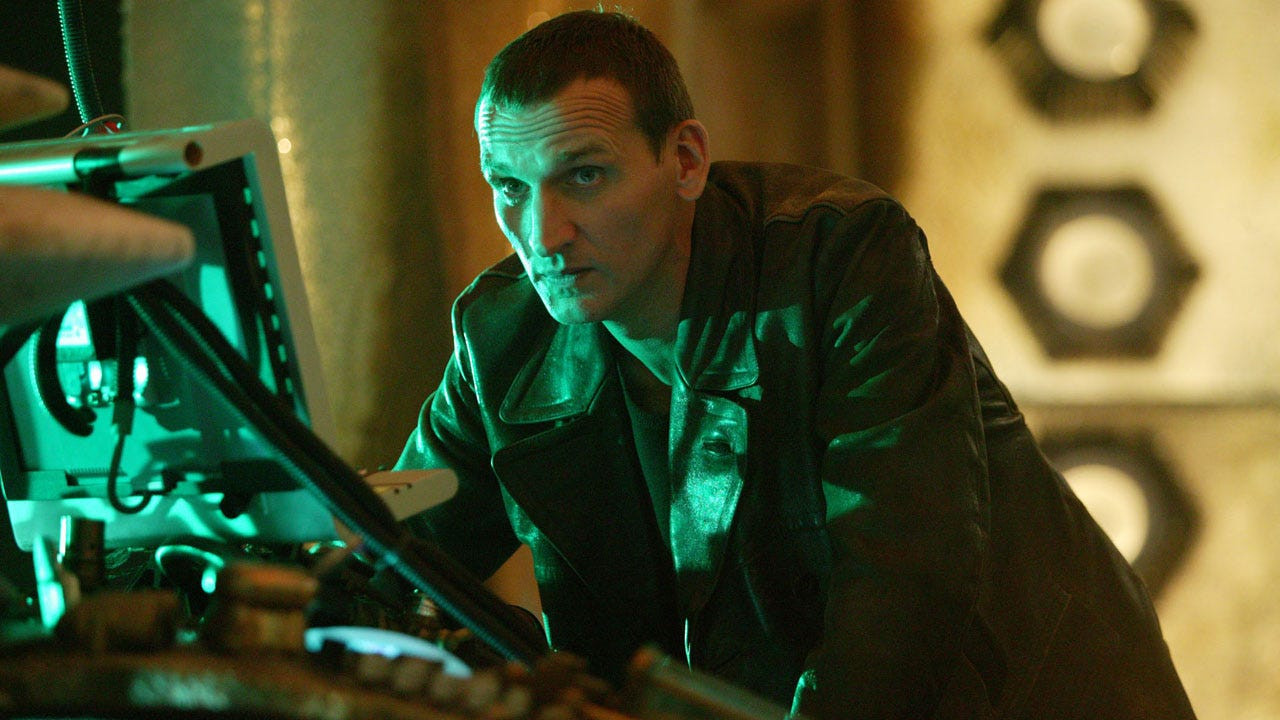 Christopher Eccleston and Billie Piper in Doctor Who Season 1, highlighting the central duo of the revived series.
Christopher Eccleston and Billie Piper in Doctor Who Season 1, highlighting the central duo of the revived series.
Russell T Davies’s writing prowess lies in his exceptional ability to create instantly compelling and deeply human characters. Whether they grace the screen for a single episode or become series regulars, his characters are richly developed, flawed, and utterly captivating. Coupled with compelling character arcs for both the Doctor and Rose, the gradual unveiling of the expansive Doctor Who mythology, and the electric chemistry between Billie Piper and Christopher Eccleston, season one stands as a formidable debut.
In fact, pinpointing the weaker episodes in season one proved more challenging than celebrating its triumphs. This abundance of strong episodes necessitates a tiered ranking system to fully appreciate the season’s nuances. I encourage readers to engage in the comments, sharing your perspectives and challenging my assessments – let the debate begin!
THE LOWER TIER: Episodes with Room to Improve
10. “The Long Game” (Episode 7): Media Critique That Misses the Mark
“The Long Game” unfortunately occupies the bottom rung as the season’s weakest link. While its critique of media manipulation and societal complacency remains relevant in our information-saturated age, the dystopian sci-fi setting feels somewhat clunky and detracts from the intended message. Simon Pegg’s unusual casting and the episode’s uneven pacing contribute to a narrative that struggles to take flight. This cautionary tale about the dangers of unchecked information control, set on a space station, ultimately feels underdeveloped and less impactful than it could have been.
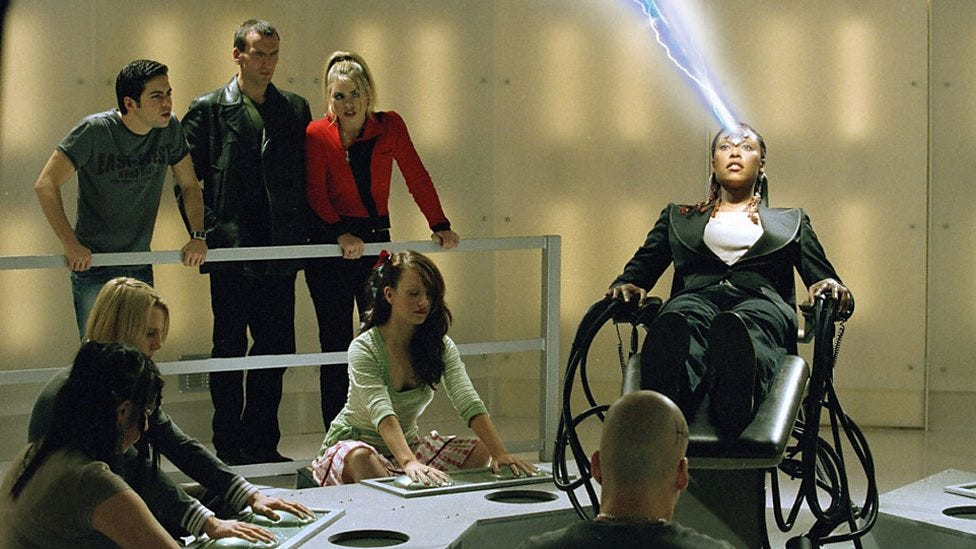 Simon Pegg in Doctor Who Season 1's "The Long Game", an episode critiquing media manipulation.
Simon Pegg in Doctor Who Season 1's "The Long Game", an episode critiquing media manipulation.
9. “Aliens of London” / “World War Three” (Episodes 4 & 5): Uneven Comedy and Earthbound Invasion
Contemporary Earth-based Doctor Who stories during the RTD era occasionally leaned into comedic territory that didn’t always land effectively, often coinciding with less polished special effects. “Aliens of London” and “World War Three” exemplify this. The Slitheen’s fart jokes are juvenile and the underlying fatphobia is undeniably uncomfortable. However, revisiting these episodes revealed unexpected strengths. They significantly enrich Rose’s home life continuity, present a reasonably engaging alien invasion mystery, and, crucially, introduce the iconic Harriet Jones, MP – a character who would become a recurring fan favorite.
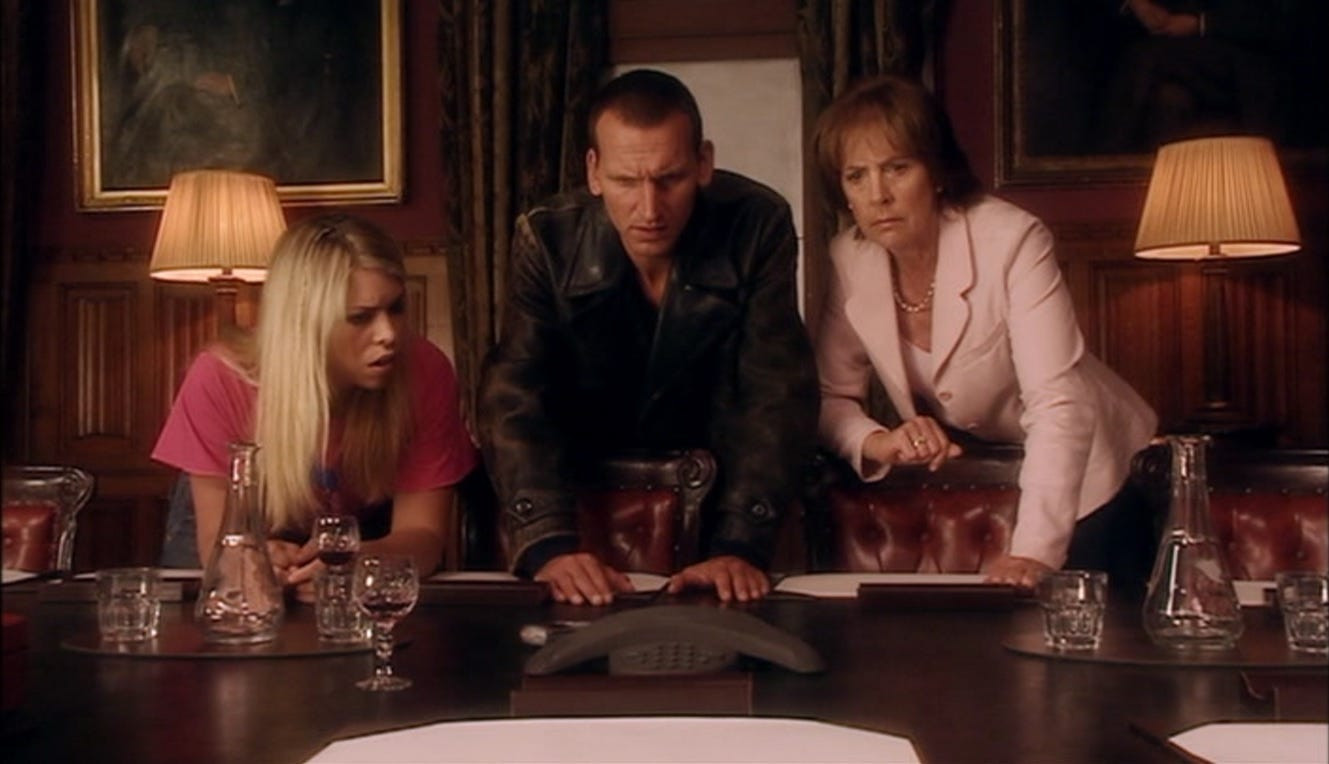 The Slitheen family in Doctor Who Season 1 episodes "Aliens of London" and "World War Three", showcasing the comedic alien invasion storyline.
The Slitheen family in Doctor Who Season 1 episodes "Aliens of London" and "World War Three", showcasing the comedic alien invasion storyline.
8. “The Unquiet Dead” (Episode 3): Historical Figures and Ghostly Encounters, But Lacking Depth
Doctor Who boasts a rich history of incorporating famous historical figures, and Simon Callow’s portrayal of Charles Dickens in “The Unquiet Dead” is a standout. Beyond this memorable performance, however, “The Unquiet Dead” settles into a more routine narrative. While not inherently flawed, especially with Eve Myles’s captivating presence, the plot feels somewhat underdeveloped and the emotional resonance is muted. While filler episodes are necessary in any season, this ghost story doesn’t particularly distinguish itself within Doctor Who‘s extensive catalogue of spooky tales.
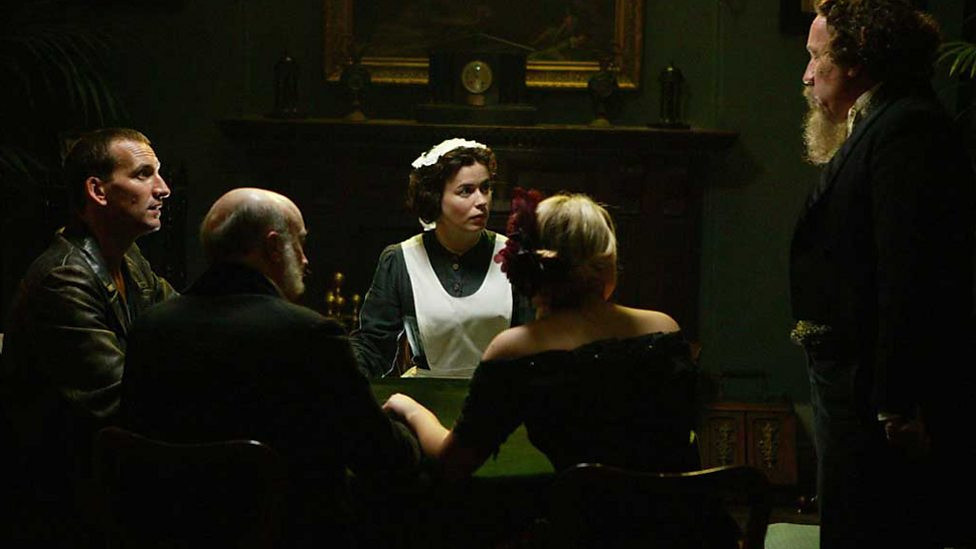 Charles Dickens encounters ghosts in Doctor Who Season 1 episode "The Unquiet Dead", featuring a historical figure in a supernatural setting.
Charles Dickens encounters ghosts in Doctor Who Season 1 episode "The Unquiet Dead", featuring a historical figure in a supernatural setting.
THE SOLID TIER: Reliable and Engaging Episodes
7. “Boom Town” (Episode 11): Character-Driven Morality Play
If “Aliens of London” and “World War Three” deserve any credit, it’s for paving the way for the improbable yet brilliant return of Annette Badland in “Boom Town.” While not strictly a bottle episode, “Boom Town” derives its tension from compelling dialogue, character exploration, and complex moral dilemmas rather than elaborate sci-fi spectacle. This shift in focus is refreshing, presenting the Doctor with the weighty decision of whether to condemn a villain to death. While perhaps slightly less impactful on a rewatch than initial viewing, “Boom Town” remains a uniquely character-focused penultimate episode, setting the stage for the season’s explosive finale, even if the resolution of turning the villain into an egg is a bit anticlimactic.
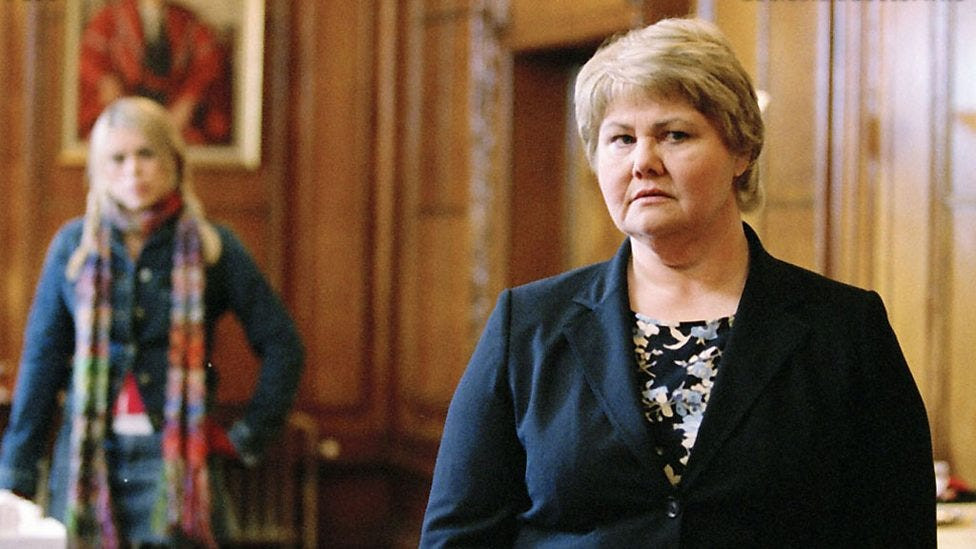 Annette Badland returns as Margaret Blaine in Doctor Who Season 1's "Boom Town", a character-driven episode focusing on moral dilemmas.
Annette Badland returns as Margaret Blaine in Doctor Who Season 1's "Boom Town", a character-driven episode focusing on moral dilemmas.
6. “Rose” (Episode 1): A Near-Perfect Reboot Introduction
While Doctor Who 2005 definitely evolved over its first season, the pilot episode, “Rose,” remarkably establishes many of the show’s core elements from the outset. Rose’s resourcefulness, the Doctor’s intricate moral compass, and even Jackie Tyler’s fully formed personality are all present from the beginning. Excluding the somewhat goofy Plastic Mickey subplot, “Rose” serves as an almost flawless introduction to RTD’s reboot. It’s a captivating mystery anchored by the instantly likeable Rose and a subtle undercurrent of melancholy that Davies masterfully portrays. The episode elegantly lays the groundwork for the Doctor Who universe while posing enough intriguing questions to propel the season (and the series) forward. Piper and Eccleston’s charmingly awkward chemistry and a driving energy effectively mask the mid-2000s low-budget aesthetic. It’s no surprise that “Rose” ignited a binge-watching phenomenon.
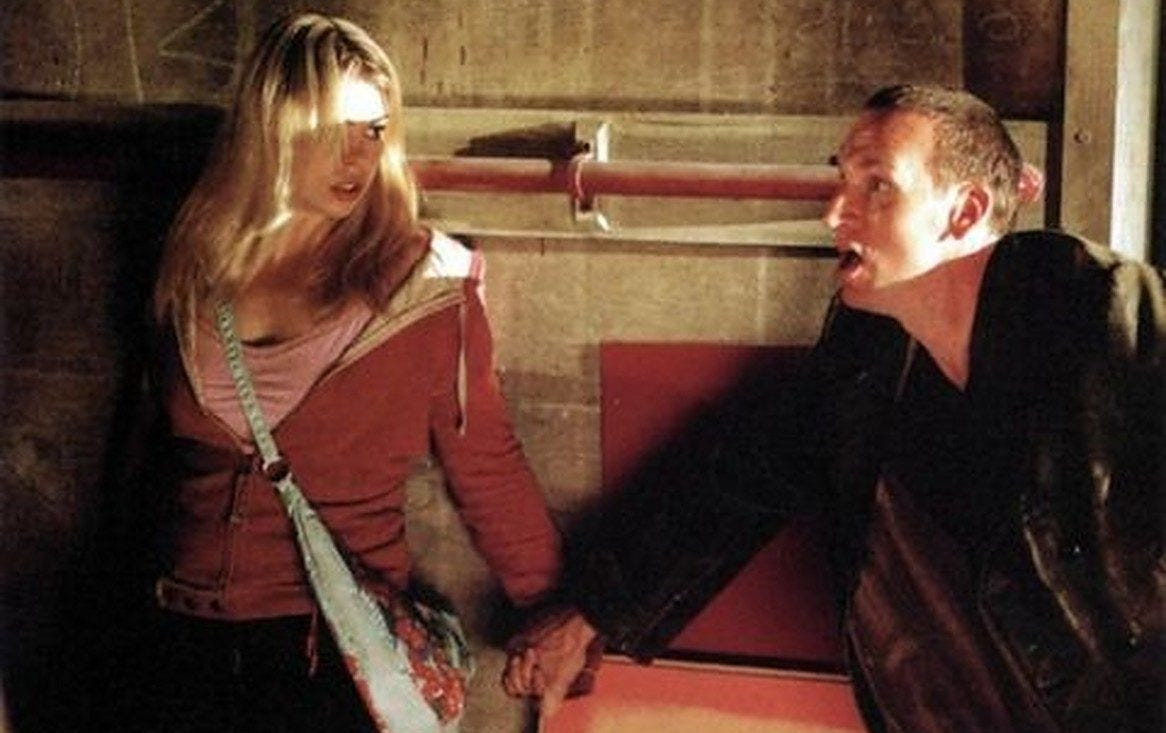 Billie Piper and Christopher Eccleston in Doctor Who Season 1 premiere "Rose", the episode that relaunched the iconic series.
Billie Piper and Christopher Eccleston in Doctor Who Season 1 premiere "Rose", the episode that relaunched the iconic series.
5. “The End of the World” (Episode 2): A Stark Introduction to Time Travel’s Realities
Perhaps no scene better encapsulates the essence of Doctor Who than the opening of “The End of the World.” Rose’s initial excitement about time travel quickly gives way to a darker reality as the Doctor takes her to witness Earth’s destruction in the year five billion. This moment perfectly illustrates the dynamic between the Doctor and his companion – his alien perspective contrasting with her human emotions. The episode subtly hints at the Doctor’s reckless decision to bring Rose to such a devastating event, suggesting it’s his way of connecting with her after the immense loss he endured in the Time War. While the balance between comedy and drama is slightly off at times (the “Toxic” needle drop feels a bit forced), Rose and the Doctor are exceptionally well-developed. The character of servant Jade is a memorable “companion-who-might-have-been,” and the iconic line “Moisturize me” remains unforgettable.
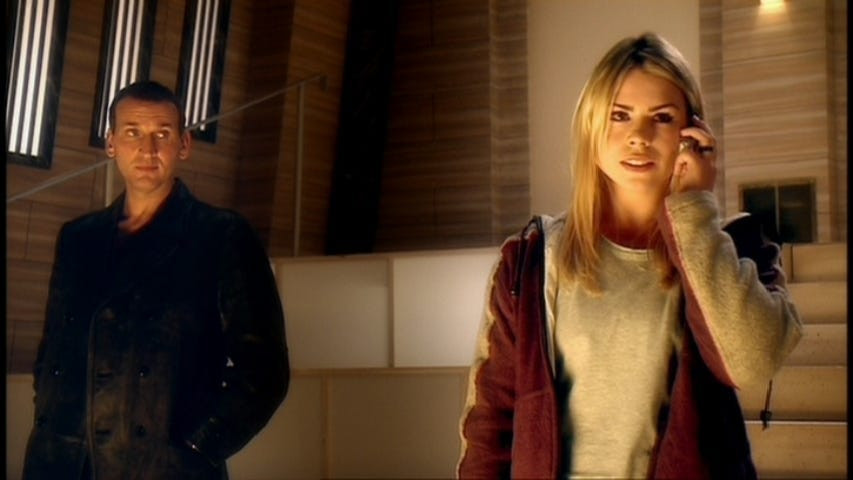 Rose and the Doctor witness Earth's end in Doctor Who Season 1's "The End of the World", a stark depiction of time travel's consequences.
Rose and the Doctor witness Earth's end in Doctor Who Season 1's "The End of the World", a stark depiction of time travel's consequences.
4. “Bad Wolf” / “The Parting of the Ways” (Episodes 12 & 13): Reality TV Dystopia and a Doctor’s Sacrifice
This two-part season finale is undeniably a time capsule of 2005 pop culture, satirizing reality TV with a dystopian twist. The Big Brother, The Weakest Link, and What Not to Wear parodies range from charmingly retro to somewhat dated (and even prefigure The Hunger Games). However, they effectively build suspense leading to the true spectacle: a Dalek invasion, the resolution of the “Bad Wolf” mystery, and the Ninth Doctor’s poignant regeneration. It’s a remarkably cohesive conclusion to RTD’s most tightly structured season. While saying goodbye to Eccleston after only 13 episodes is bittersweet, there’s a powerful message in how the season gradually unveils the broader Doctor Who mythology, culminating in a crucial lesson about Time Lord regeneration. Change is inherent to Doctor Who, and Eccleston’s brief but impactful tenure ensures the audience (and Rose) learns this early on. The subsequent RTD era of Doctor Who wouldn’t have resonated as deeply without the foundation laid by Eccleston, Piper, and Davies in this season. The finale serves as a fitting and emotionally resonant farewell.
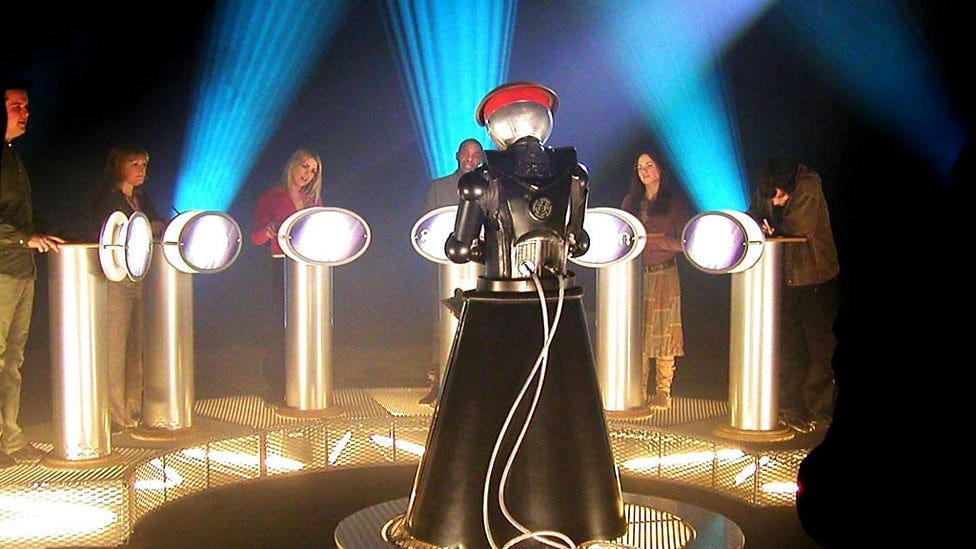 The Daleks return in Doctor Who Season 1 finale "Bad Wolf" and "The Parting of the Ways", leading to the Ninth Doctor's regeneration.
The Daleks return in Doctor Who Season 1 finale "Bad Wolf" and "The Parting of the Ways", leading to the Ninth Doctor's regeneration.
THE TOP TIER: Season One Masterpieces
3. “The Empty Child” / “The Doctor Dances” (Episodes 9 & 10): Moffat’s Haunting and Heartfelt Debut
While Steven Moffat’s time as Doctor Who showrunner is subject to varied opinions, his contribution to the series includes some of its most exceptional episodes. This began in the RTD era with the iconic two-parter, “The Empty Child” and “The Doctor Dances.” From the outset, these episodes establish a distinct atmosphere, darker and more mysterious than the season’s preceding installments, yet also infused with a playful mischievousness (undoubtedly amplified by the introduction of Captain Jack Harkness). It seamlessly blends the cool, intricate plotting that would define Moffat’s later tenure with the character-centric emotional core of the RTD era. “Just this once, everybody lives,” becomes a defining and hopeful moment, elevating the season as a whole.
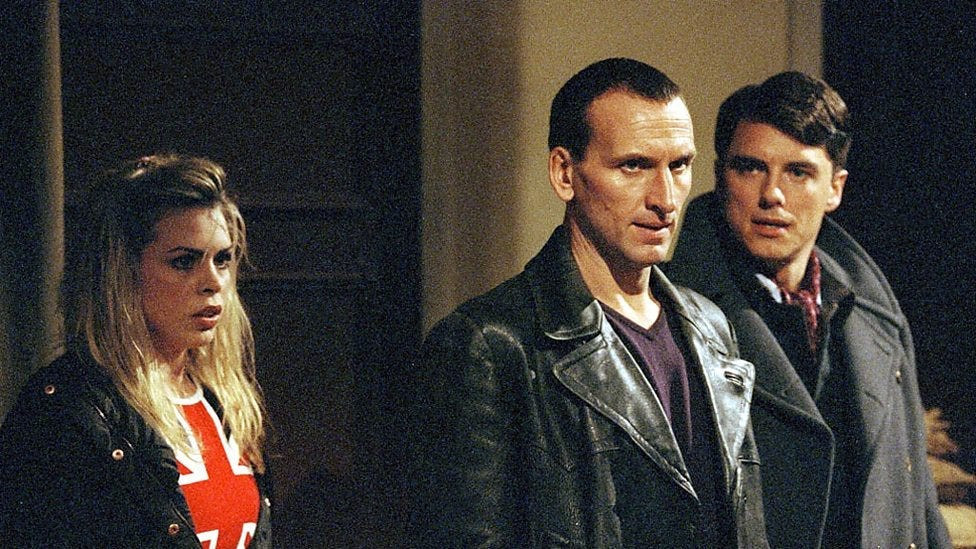 Captain Jack Harkness makes his debut in Doctor Who Season 1's "The Empty Child" and "The Doctor Dances", a pivotal two-parter.
Captain Jack Harkness makes his debut in Doctor Who Season 1's "The Empty Child" and "The Doctor Dances", a pivotal two-parter.
2. “Dalek” (Episode 6): Reimagining an Icon and Exploring War’s Scars
The first five episodes of Doctor Who 2005 demonstrated its potential to be a good show; “Dalek” proved it could be truly great. Beneath the surface of what appears to be a timely satire of arrogant tech billionaires lies a profound exploration of how two survivors of devastating wars – the Doctor and a Dalek – grapple with being the last of their kind. Reducing the Dalek Empire to a solitary, tragic, and terrifying survivor is a brilliant strategy, effectively introducing the iconic villains to new viewers while offering a fresh perspective for long-time fans. However, it’s Christopher Eccleston’s performance that truly shines. Confronting his ultimate enemy, the Ninth Doctor’s outwardly gruff and comedic persona cracks, revealing a deep reservoir of pain and rage kept in check only by his companion, Rose. Lines like, “You would make a good Dalek,” are chillingly impactful. “Dalek” stands as the season’s most morally complex episode, and arguably one of the series’ most thought-provoking, demonstrating that modern Doctor Who can be far more than just lighthearted sci-fi entertainment.
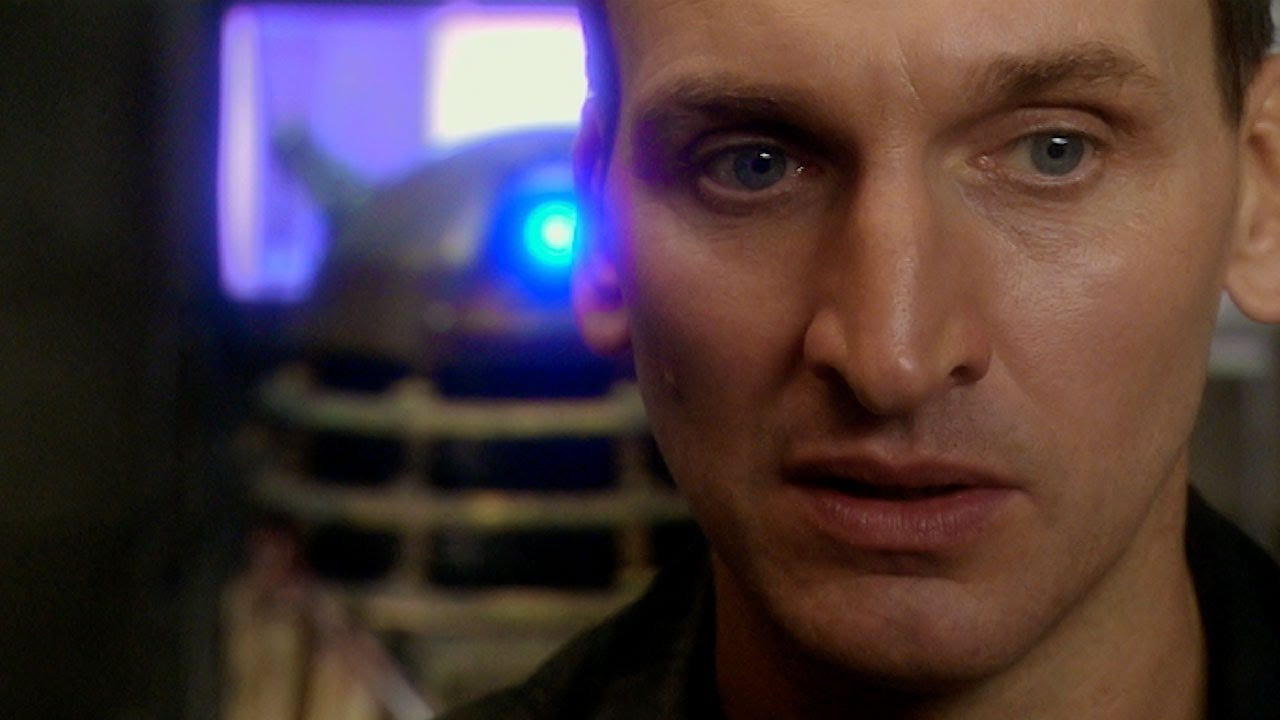 The Ninth Doctor confronts a lone Dalek in Doctor Who Season 1's "Dalek", a powerful episode exploring war trauma and moral complexity.
The Ninth Doctor confronts a lone Dalek in Doctor Who Season 1's "Dalek", a powerful episode exploring war trauma and moral complexity.
1. “Father’s Day” (Episode 8): The Emotional Heart of RTD’s Doctor Who
While “Dalek” strongly contended for the top spot, “Father’s Day” ultimately embodies what makes RTD’s Doctor Who so exceptional: character-driven sci-fi where emotions take precedence over the intricacies of time travel. The episode utilizes a time paradox as a plot device, but its core is an exploration of parenthood, sacrifice, grief, and love. Beyond being a remarkable standalone story, “Father’s Day” is perfectly positioned within the season’s narrative arc. Rose’s impulsive choice to save her father highlights her growth as a companion while underscoring her naiveté regarding the profound consequences of altering time. While primarily Rose’s episode, Eccleston delivers a stunning emotional range, from his anger at Rose’s actions to his tender “who says you’re not important?” speech. Even the Doctor’s willingness to take Rose to such a pivotal moment in her personal history speaks volumes about his feelings for her. Shaun Dingwall’s outstanding supporting performance further elevates the episode. “Father’s Day” is smart, moving, tragic, and ultimately hopeful – it represents the pinnacle of RTD’s Doctor Who era.
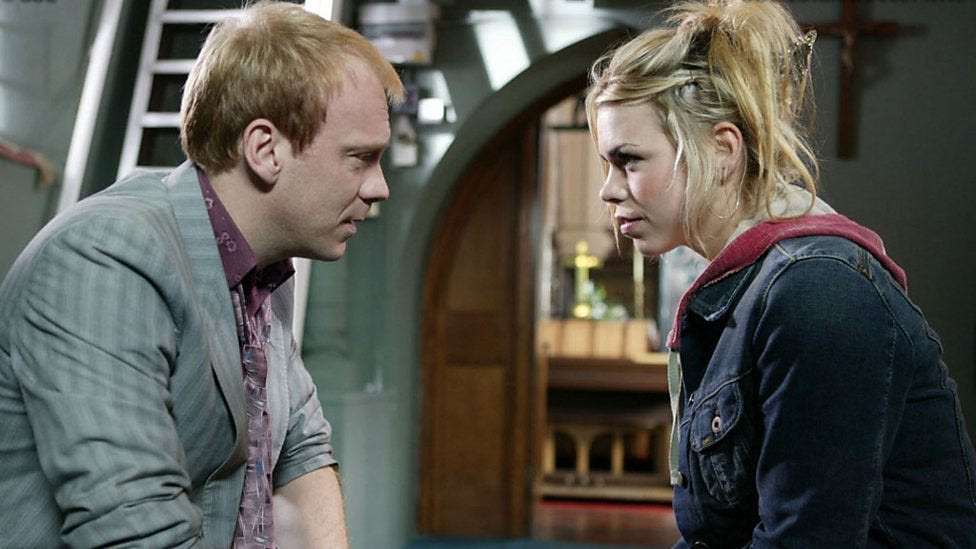 Rose Tyler and her father in Doctor Who Season 1's "Father's Day", an emotionally resonant episode focused on family and sacrifice.
Rose Tyler and her father in Doctor Who Season 1's "Father's Day", an emotionally resonant episode focused on family and sacrifice.
Coming Soon on Girl Culture: A season two Doctor Who ranking will follow, but first, a look back at the live-action Little Mermaid now available on Disney+.
Girl Culture’s content is freely accessible, with options to support the newsletter at $5 monthly or $50 annually.
